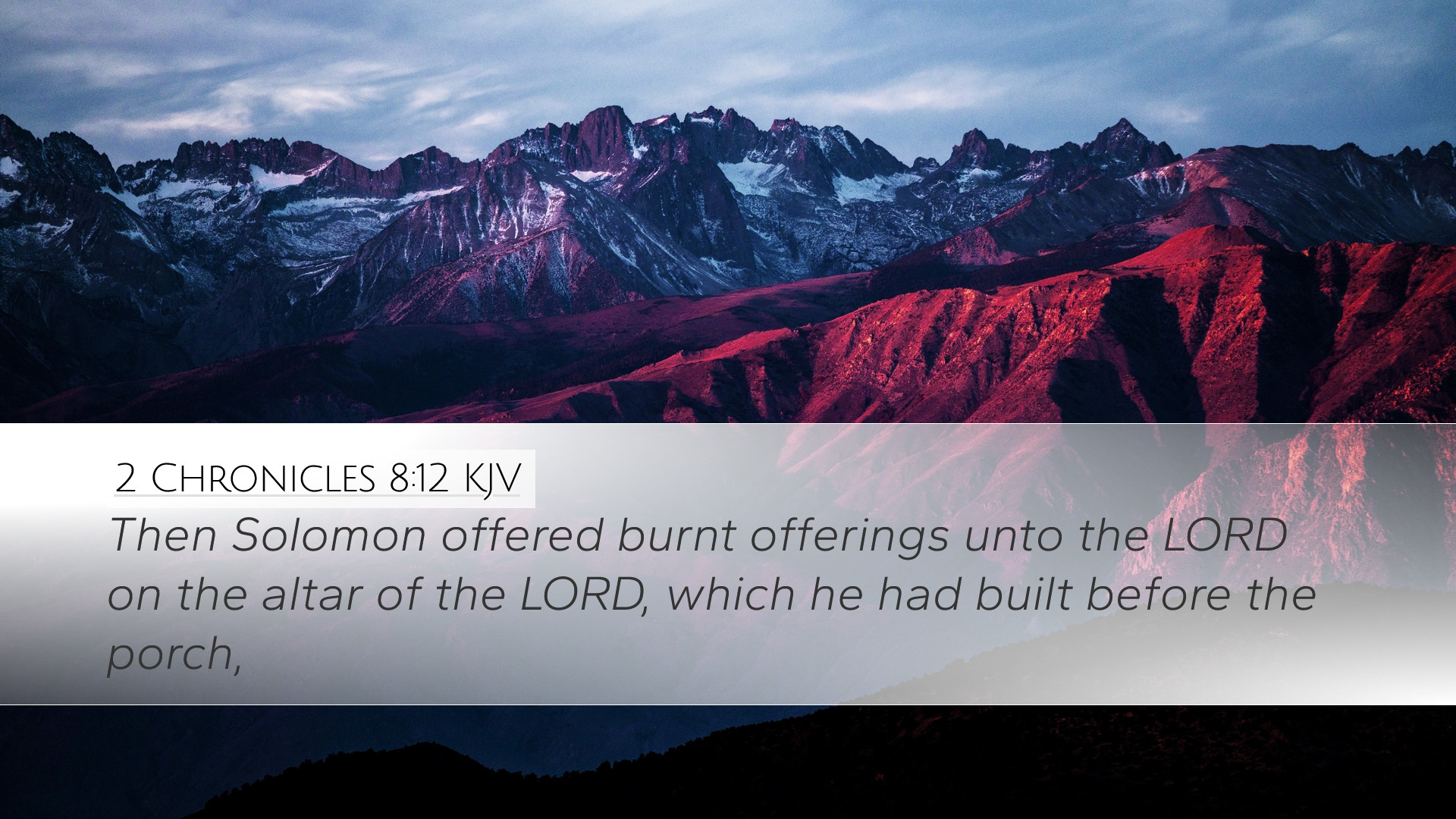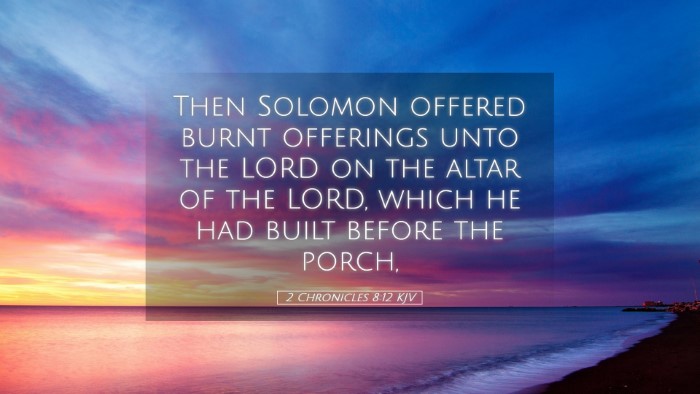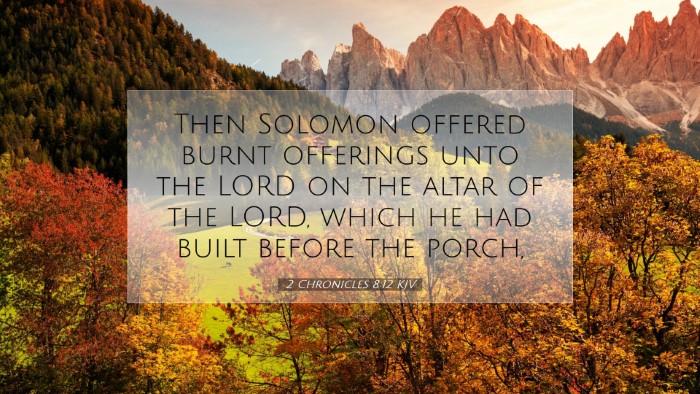Commentary on 2 Chronicles 8:12
Verse Overview
2 Chronicles 8:12 states: "Then Solomon offered burnt offerings unto the LORD on the altar of the LORD, which he had built before the porch." This verse succinctly encapsulates an important moment in Solomon's reign, reflecting his devotion to God through sacrificial worship. In exploring this passage, we will draw insights from traditional commentaries to provide depth and understanding for pastors, students, theologians, and Bible scholars.
Significance of Solomon's Offerings
Solomon's act of offering burnt offerings signifies not only personal devotion but also the dedication of the newly built temple. According to Matthew Henry, these offerings symbolize the acknowledgment of God's sovereignty and the need for atonement. Henry emphasizes that Solomon's gesture is indicative of a king who understands the importance of leading his people in spiritual matters.
Albert Barnes adds that the offerings were a central part of Israelite worship, as they represented both gratitude and repentance. By offering these sacrifices, Solomon sought to establish a relationship of both reverence and responsibility with the Lord, setting a precedent for the worship practices of his kingdom.
The Context of Temple Worship
This verse takes place within a broader narrative about the construction of the temple. Adam Clarke notes that the temple was not only a physical structure but also a spiritual center for Israel. Clarke posits that the altar where Solomon made these offerings became a symbolic meeting point between the divine and humanity, thereby affirming the significance of worship within the nation's identity.
Understanding Burnt Offerings
Burnt offerings hold a unique place in the sacrificial system of ancient Israel. Henry clarifies that these offerings were completely consumed by fire, symbolizing total dedication and surrender to God. This act of offering reflects the inward disposition of the heart, where the worshipper acknowledges their need for divine grace and communicates their utmost devotion.
The Role of Leadership in Worship
Leaders play a crucial role in shaping the worship culture of their communities. Barnes emphasizes that Solomon's actions set an example for both current and future generations of Israelites. His recognition of the need for sacrificial atonement is paramount, as it models the faith and priorities that the nation should uphold before the Lord.
Theological Implications
The verse brings forth several theological themes worthy of exploration. First, it emphasizes God's holiness and the necessity of atonement. Worship cannot be approached flippantly; it demands a heart that recognizes sin and seeks reconciliation. Clarke points out that this understanding of worship and sacrifice foreshadows the ultimate sacrifice of Christ, underscoring a redemptive narrative that spans the entirety of Scripture.
- Divine Presence: The offerings underscore the belief in God's active presence among His people.
- Community Impact: Solomon’s leadership in worship reflects on community standards, influencing the spiritual health of the nation.
- Symbol of Devotion: The burnt offerings represent a deep devotion to God, emphasizing surrender and commitment.
Practical Applications
For contemporary believers, this verse calls for reflection on the nature of worship and the heart behind it. It challenges modern worshippers to consider their own sacrificial offerings—both tangible and intangible. Barnes encourages believers to offer their lives as living sacrifices, embodying the spirit of Romans 12:1. This signifies dedicating one's total being to God’s service.
Conclusion
2 Chronicles 8:12 serves as a reminder of the centrality of worship in the life of faith. Solomon’s offerings are not merely historical artifacts; they invite us into a deeper understanding of our relationship with God. As we reflect on this passage, let us be inspired by the lessons of leadership, the seriousness of worship, and the call to offer ourselves entirely to the Lord.
In conclusion, drawing from the rich exegesis of Matthew Henry, Albert Barnes, and Adam Clarke, this commentary elucidates the profound implications of sacrificial worship as depicted in 2 Chronicles 8:12. May this insight inspire a renewed commitment to worship among leaders and congregants alike.


